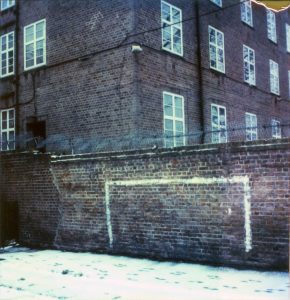
By Grant Jarvie, Paul Widdop, Jake Barrett, Danny Bisland and Jen Malone
Football is a hugely important part of Edinburgh’s social fabric and its potential for building connections between people at home and abroad has still to be fully realised, research suggests.
The significance of football clubs as community assets should not be underestimated, the Edinburgh Academy of Sport study says – with 86 per cent of club representatives believing football teams help to bring the local community together.
Researchers found that 98 per cent of participants are happier because they are part of a football club, and 78 per cent agreed that it helped their mental health in general.
Some 77 per cent of supporters surveyed believe the city of Edinburgh is extremely important to their lives.
Mutual opportunities present themselves for both the city and football stakeholders, says report author Grant Jarvie.
The City of Edinburgh Council’s Strategy for sport and physical activity, which is currently at the public consultation stage, presents a fantastic opportunity to maximise football’s appeal, according to Professor Jarvie.
The findings are contained in Edinburgh Futures, Football and the City – the latest of seven research reports released by the University of Edinburgh’s Academy of Sport that critically evidence and examine aspects of football locally and internationally.
Edinburgh has, for some time, had a data-driven innovation approach to enabling the city – and advancing data and digital capability amongst the citizens of Edinburgh.
The city has significant football assets, and these could be more visible in Edinburgh’s present and future thinking as a fair, pioneering, welcoming, globally connected, thriving city – a place where traditional networks and services are made more efficient with the use of digital solutions for the benefit of all.
You can’t talk of future cities without more than a passing comment on the stadiums of the future, their technological capability and the fan experience of the not-so-distant future.
The European Football Championships being held in Germany could be a catalyst for Edinburgh connecting with its sister cities, which include Munich.
The report calls for stronger links to be forged with Edinburgh’s other twin and sister cities, which include Nice (1958), Florence (1964), Dunedin (1974), Vancouver (1977), San Diego (1977), Xi’an (1985), Kyiv (1989), Aalborg (1991), Krakow (1995) and most recently Shenzen (2019),
City and Scottish Government officials have still to grasp the potential of football – and sport more generally – to open up trade, business and influence through city-to-city cultural relationship building.
Edinburgh like Paris, Stockholm and Auckland could aspire to be a sporting city and ranked as such internationally, the report says.
Edinburgh – and Scotland – could follow the example of Wales and seriously scan the horizon to embed football and sport into Scottish and UK ministerial calendars. Such a strategy could identify and take advantage of future opportunities for trade, tourism and wider cultural relations building.
Universities – and, specifically, sports in universities – are significant untapped channels for connecting and engaging with other parts of the world.
Edinburgh Futures Institute, which is partly funded by Edinburgh and South East Scotland City Region Deal, acknowledges that some of the biggest challenges facing cities and indeed societies locally and globally are complex and interconnected.
It recognises that insight, innovation and impact come from bringing people and knowledge together, and that addressing the challenges of our time requires radical and creative collaborations.
Edinburgh Futures, Football and the City 2024 Report



